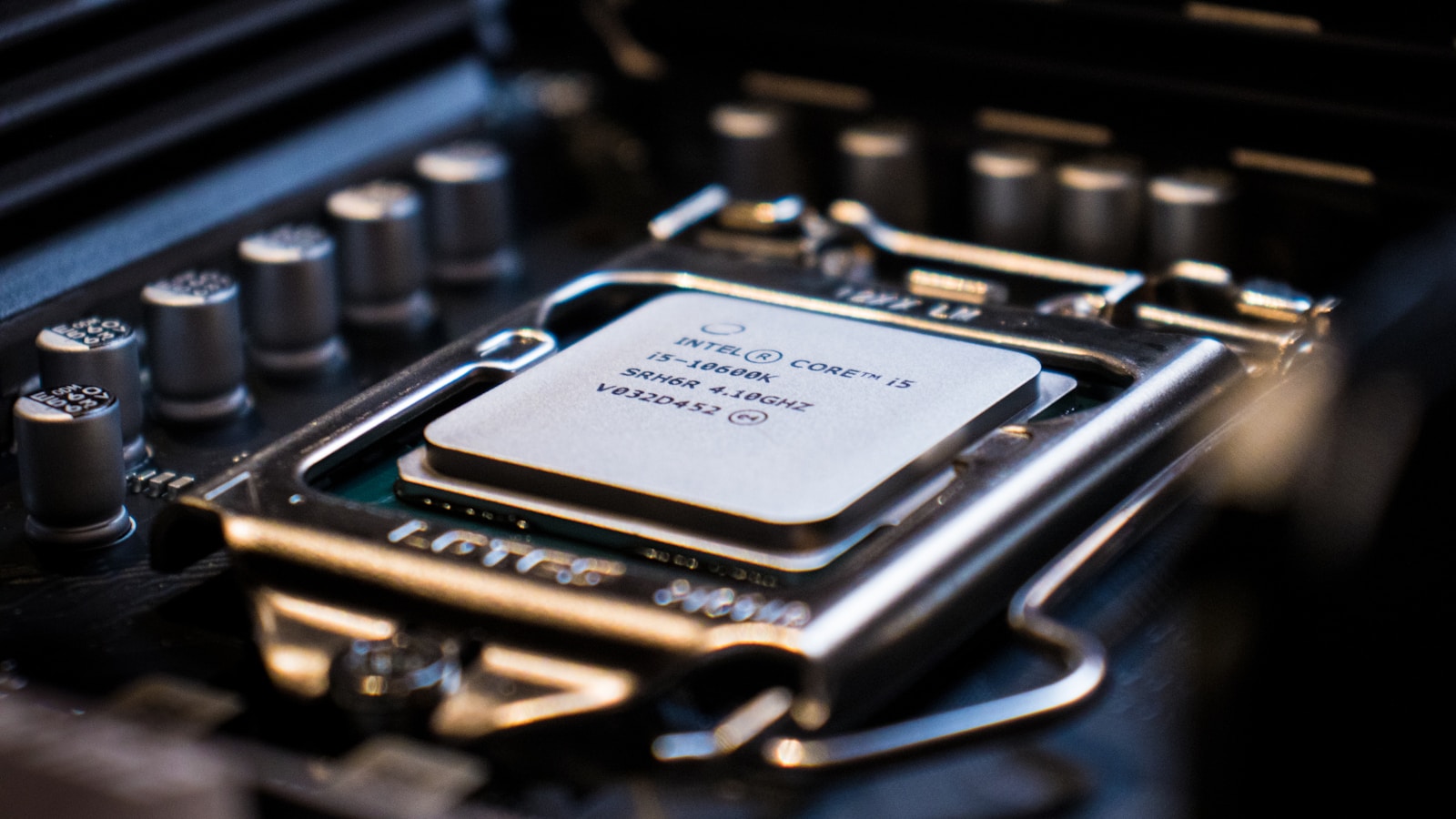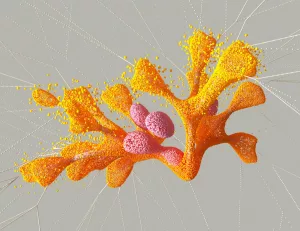Silicon is one of the most important materials in modern technology, particularly in the production of computer chips, also known as semiconductors. These chips are the heart of every electronic device we use today, from smartphones and laptops to servers and supercomputers. But why is silicon the material of choice for these crucial components? The answer lies in its unique properties, availability, and versatility.
In this article, we’ll explore the reasons why silicon is so widely used in computer chips and how it became the cornerstone of the electronics industry.
1. Abundance and Availability
One of the most practical reasons for the widespread use of silicon in computer chips is its abundance. Silicon is the second most abundant element in the Earth’s crust, making up around 28% of it. This availability makes silicon both affordable and easy to source for large-scale production.
Why Abundance Matters:
The electronics industry requires massive amounts of materials to produce billions of computer chips each year. Silicon’s abundance ensures that manufacturers have a reliable and consistent supply of the raw material needed to meet the growing demand for electronic devices. Additionally, the widespread availability of silicon helps keep production costs low, making electronic devices more affordable for consumers.
Key Takeaway:
Silicon’s abundant supply and affordability are critical factors in its dominance in the semiconductor industry, ensuring that manufacturers can produce chips at scale while keeping costs down.
2. Semiconductor Properties
At the core of silicon’s importance is its semiconductor properties. A semiconductor is a material that can conduct electricity under certain conditions but not others, making it ideal for controlling electrical signals. This controllability is essential for creating transistors, which are the building blocks of computer chips.
Why Semiconductor Properties Are Important:
Semiconductors like silicon can switch between conducting and insulating states, enabling the creation of transistors that act as switches or amplifiers in electronic circuits. By controlling the flow of electrical current, transistors can store data, perform calculations, and manage logic functions in a computer chip. Silicon’s ability to act as a semiconductor means it can be precisely manipulated to create millions or billions of transistors on a single chip.
Other materials can also function as semiconductors, but silicon’s specific semiconductor properties make it particularly well-suited for this role. It has an ideal balance between conducting and insulating properties, allowing for efficient performance in a wide range of applications.
Key Takeaway:
Silicon’s role as a semiconductor is central to its use in computer chips. Its ability to precisely control electrical current makes it an ideal material for building the transistors that power modern electronics.
3. Silicon’s Band Gap
Another important reason silicon is used in computer chips is its band gap—the energy required to move electrons from a non-conductive state to a conductive state. Silicon has a band gap of 1.1 electron volts (eV), which is perfect for electronic applications. It is large enough to prevent excessive current leakage when the transistor is off but small enough to allow current to flow efficiently when the transistor is on.
Why the Band Gap Is Important:
The band gap of a semiconductor determines how easily it can switch between conducting and insulating states. Silicon’s band gap allows for reliable switching behavior in transistors, which is essential for digital logic circuits. If the band gap were too small, the chip would have higher power consumption and more heat generation due to leakage current. If the band gap were too large, it would require more energy to switch the transistors, reducing the chip’s overall efficiency.
Silicon’s moderate band gap strikes the right balance, allowing it to perform efficiently with minimal power loss while still providing the necessary switching capabilities for complex circuits.
Key Takeaway:
Silicon’s band gap is perfectly suited for digital electronics, offering efficient switching with minimal power loss, making it ideal for use in transistors and other semiconductor devices.
4. Oxide Layer Formation
One of the most unique properties of silicon is its ability to form a stable and high-quality oxide layer when exposed to oxygen. This silicon dioxide (SiO₂) layer is crucial in the fabrication of transistors and integrated circuits. The oxide layer acts as an excellent insulator and can be used to create components such as capacitors and gate insulators in transistors.
Why the Oxide Layer Is Crucial:
Silicon dioxide can be grown directly on the silicon surface, creating an insulating layer that separates the different parts of a transistor. This layer is incredibly stable, thermally robust, and provides excellent electrical insulation, which is essential for controlling the flow of current in a chip’s circuitry.
The ability to create this oxide layer allows for greater flexibility in designing and manufacturing transistors. It also ensures that the chips are reliable and can function effectively without short-circuiting, even in tightly packed, high-performance circuits.
Key Takeaway:
Silicon’s ability to form a stable and high-quality oxide layer is a major reason why it’s used in computer chips. This oxide layer is crucial for insulating and controlling current flow in transistors, making silicon-based chips more reliable and efficient.
5. Thermal Stability
Silicon is also favored for its thermal stability. It can withstand high temperatures during the chip manufacturing process without degrading or losing its semiconductor properties. This thermal resilience is important because semiconductor fabrication involves processes like doping, etching, and ion implantation, all of which require high temperatures.
Why Thermal Stability Matters:
During chip production, materials need to endure high-temperature processes, and silicon’s thermal stability ensures that it remains structurally sound and electrically effective throughout these steps. Additionally, silicon chips can operate under a wide range of temperatures without overheating or malfunctioning, which is essential for ensuring the longevity and reliability of electronic devices.
Other semiconductor materials may degrade or lose efficiency at high temperatures, making silicon the best choice for creating durable and stable chips.
Key Takeaway:
Silicon’s ability to maintain its properties at high temperatures makes it ideal for semiconductor manufacturing and ensures that silicon chips are durable and reliable in real-world applications.
6. Cost-Effectiveness of Manufacturing
Another reason silicon is so widely used in computer chips is the cost-effectiveness of its manufacturing processes. Over decades of development, the semiconductor industry has perfected techniques for processing silicon wafers, which are thin slices of silicon used to create integrated circuits. This optimization has made silicon-based chip manufacturing highly efficient and cost-effective.
How Cost-Effectiveness Impacts Silicon’s Use:
The production of silicon wafers is a well-established process that involves purifying silicon, forming it into ingots, slicing the ingots into wafers, and then fabricating chips on these wafers using photolithography and other advanced techniques. This process has been refined to the point where manufacturers can produce billions of transistors on a single silicon wafer at a relatively low cost.
The economies of scale achieved by using silicon make it the most practical material for the mass production of computer chips, ensuring that manufacturers can produce high-performance, low-cost chips for a wide range of electronic devices.
Key Takeaway:
Silicon’s cost-effective manufacturing process has made it the dominant material in semiconductor production, allowing companies to produce high-performance chips at scale while keeping costs down.
7. Established Industry Infrastructure
The semiconductor industry has built a vast infrastructure around silicon-based chip production. Decades of research, development, and investment have gone into optimizing silicon processing, refining fabrication techniques, and developing equipment specifically designed for working with silicon wafers.
Why Infrastructure Matters:
Silicon has become the standard material for computer chips, and the entire semiconductor industry is set up to support its use. From the equipment used in semiconductor fabrication plants to the expertise of engineers and researchers, silicon is deeply integrated into the global electronics supply chain. This established infrastructure makes it difficult for alternative materials to compete with silicon on the same scale.
New materials, such as gallium nitride (GaN) and silicon carbide (SiC), are emerging in certain specialized applications, but silicon remains the material of choice for most consumer electronics due to the vast and well-established infrastructure supporting its use.
Key Takeaway:
The semiconductor industry’s long-established infrastructure for working with silicon makes it the most practical and efficient choice for chip production. The vast knowledge base and equipment designed for silicon ensure its continued dominance in the industry.
Conclusion
Silicon’s dominance in the world of computer chips is the result of its unique combination of abundance, semiconductor properties, thermal stability, and cost-effective manufacturing processes. Its ability to form a stable oxide layer, operate efficiently within a specific band gap, and withstand high temperatures makes it ideal for the creation of transistors—the building blocks of modern electronic devices. Furthermore, the semiconductor industry’s extensive infrastructure and expertise in silicon processing have cemented its role as the primary material in chip production.
While new materials are being explored for specialized applications, silicon remains the backbone of the semiconductor industry, powering everything from smartphones and laptops to the most advanced supercomputers.




